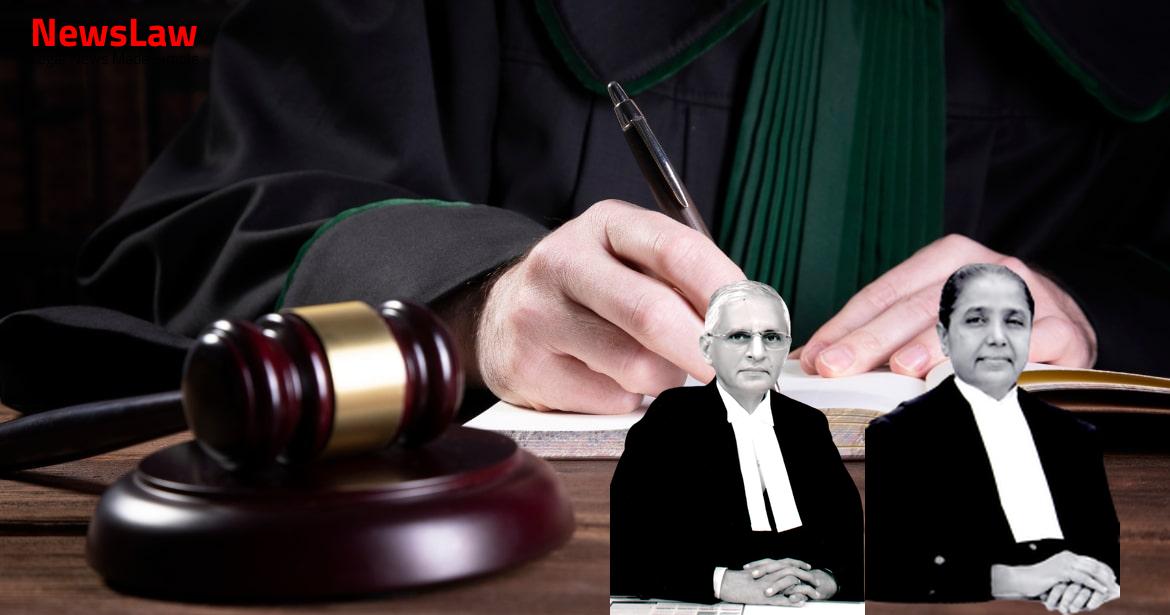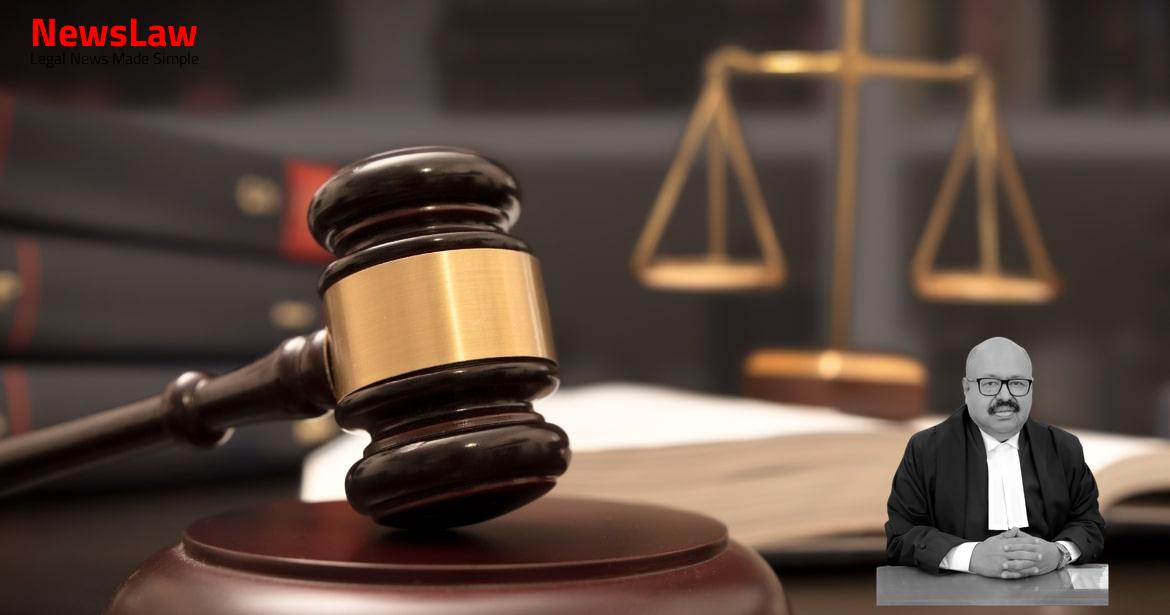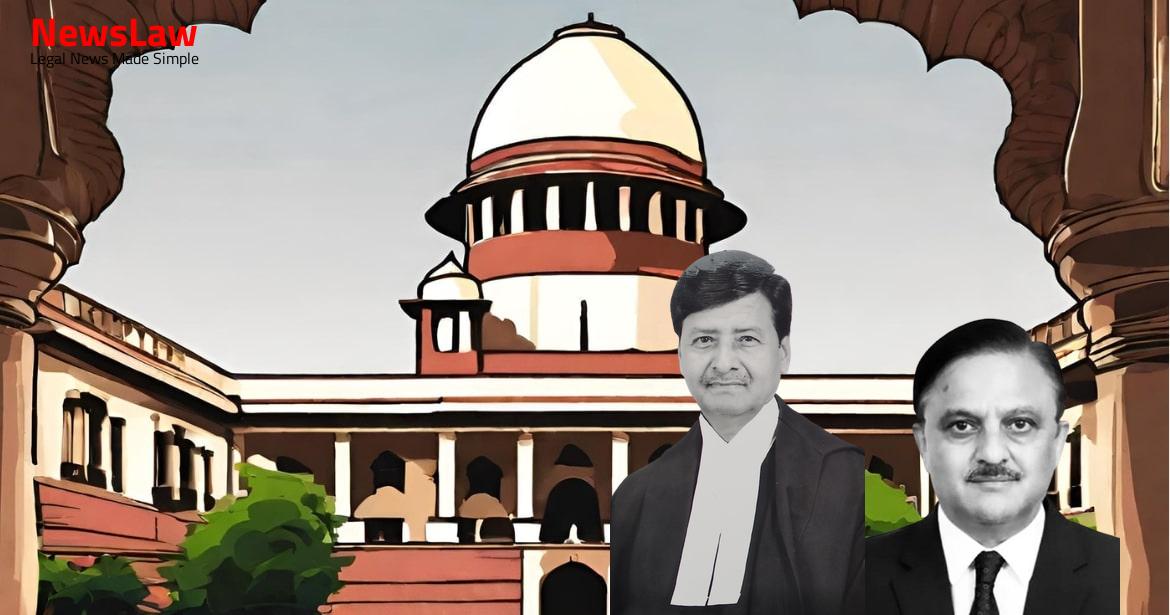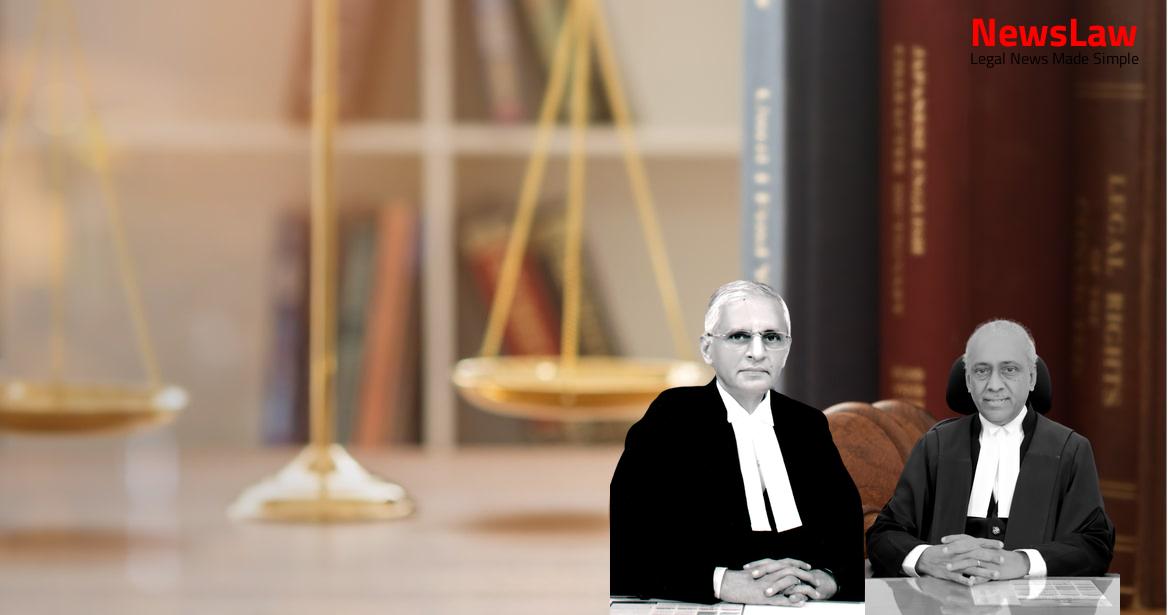Dive into the legal realm where the RTI Act clashes with High Court Rules, as the court meticulously analyzes the balance between transparency and privacy. Discover how the court’s interpretation of legal provisions sheds light on the complexities of accessing information while safeguarding sensitive data.
Facts
- Respondent No.2 filed Second Appeal No. 1437 of 2010-11 before the Chief Information Commissioner.
- Respondent No.1 was informed about the appeal.
- The appeal was admitted and an interim order was passed to provide the information within four weeks.
- The appeal raised the question of a third party’s right to apply for certified copies without following the Gujarat High Court Rules.
- Respondent No.2 then filed Appeal No. 84 of 2010 before the Appellate Authority.
- Respondent No.1 reiterated the need to follow Rules 149 to 154 for obtaining certified copies.
- The Chief Information Commissioner ordered the Gujarat High Court to provide the information sought by respondent No.2.
- Respondent No.1 challenged the Chief Information Commissioner’s order in the High Court, which was dismissed on the grounds of alternative remedies available under Gujarat High Court Rules.
- Supply of information by respondent No.1 does not imply acceptance of RTI Act applicability to the High Court.
- The legality of the direction by the appellant and respondent No.2’s right to receive copies under RTI Act to be determined at final hearing.
- The High Court allowed Letters Patent Appeal stating that established rules supersede new rules unless declared ultra vires.
- High Court Rules require application, copying charges, and court fees for certified copies; RTI Act not applicable.
- The Division Bench overturned the Chief Information Commissioner’s order, emphasizing compliance with High Court Rules for copy requests.
- Certified copies must adhere to High Court Rules, and the applicant must provide an affidavit stating the purpose, not an RTI Act application.
Also Read: Jurisdiction of Family Court in Cases under Muslim Women’s Protection Act
Issue
- The following points arise for consideration in this appeal: (i)
Also Read: Clarity on Arbitration Seat Jurisdiction
Arguments
- The High Court Rules are framed under Article 225 of the Constitution of India, providing a mode for furnishing information via certified copies to parties involved in litigation after payment of fees.
- Section 22 of the RTI Act states that RTI provisions have an overriding effect over other laws in force.
- Inconsistencies between the RTI Act and High Court Rules lead to the conclusion that the RTI Act prevails in case of conflict.
- RTI Act’s non-obstante clause shows it overrides High Court Rules.
- Judgment referenced to support this argument is Central Public Information Officer, Supreme Court of India v. Subhash Chandra Agrawal 2019 (16) SCALE 40.
- The right to information under the RTI Act has supremacy over procedural laws like the Gujarat High Court Rules, as seen in the conflict regarding reasons for seeking information.
- Information held by the High Court includes details related to parties in litigation, orders, judgments, administrative matters, and correspondence.
- Parties to proceedings can access/copy documents and orders as per High Court Rules.
- Third parties do not have automatic right to access information; rules require application, fee, and affidavit stating grounds.
Also Read: Land Acquisition Valuation and Development Deductions
Analysis
- Section 8(1) of the RTI Act provides for exemption from disclosure of information.
- Right to information is subject to exceptions or exemptions stated in Section 8(1)(a) to 8(1)(j) of the RTI Act.
- The term ‘public authority’ has been given a very wide meaning in the RTI Act.
- Section 2(h) of the RTI Act defines ‘public authority’ as any authority or body established by the Constitution, laws made by Parliament or State Legislature, or by notification issued by the appropriate Government.
- Section 2(i) of the RTI Act defines ‘record’ broadly to include various forms of documents and materials.
- Section 2(j) explains the ‘right to information’ which includes the right to inspect, obtain copies, and access information under the control of any public authority.
- Section 2(f) of the RTI Act defines ‘information’ broadly to include material in any form accessible by a public authority under any law.
- Rule 151 of the RTI Act outlines the process for parties to proceedings to obtain copies, with applications by third parties to be accompanied by affidavits.
- Clause (a) to (j) of Section 8(1) of the RTI Act detail the various exemptions for disclosure of information, including matters related to national security, contempt of court, breach of privilege, commercial information, fiduciary relationships, and personal information.
- The Supreme Court, in Central Public Information Officer, Supreme Court of India v. Subhash Chandra Agrawal 2019 (16) SCALE 40, upheld the order for disclosure of information about assets declared by judges of the Supreme Court, stating it does not impinge on personal information or the right to privacy.
- Section 2(h) of the RTI Act defines ‘public authority’.
- The object of the RTI Act is to harmonise conflicting public interests by ensuring transparency for bringing in accountability and containing corruption while also preserving other public interests like efficient functioning of governments, optimal use of fiscal resources, and confidentiality of sensitive information.
- Sections 8, 9, 10, and 11 of the RTI Act aim to protect public interests other than transparency as highlighted in Sections 3 and 4.
- Exemptions provided in Section 8 should be viewed as equally important provisions safeguarding other public interests necessary for democratic ideals rather than as hindrances to the right to information.
- Competent authorities under the RTI Act should interpret exemptions in Section 8 practically to maintain a balance between transparency and protection of other public interests.
- The Delhi High Court in ‘The Registrar Supreme Court of India v. R S Misra’ held that if information can be accessed through other mechanisms provided by existing rules and schemes, the provisions of the RTI Act should not be used redundantly.
- Section 2(j) of the RTI Act focuses on information under the exclusive control of public authorities and recommends that providing copies or certified copies is integral to providing information.
- The principle of ‘generalia specialibus non derogant’ was referred to in the context of resolving conflicts between general and special laws.
- Sections 4(2), (3), and (4) of the RTI Act aim to minimize reliance on the Act by disseminating information effectively.
- The obligation for a third party to file an affidavit stating reasons for seeking documents in legal proceedings, as per High Court Rules, does not contradict the RTI Act as rejections would align with Section 8 reasons.
- Personal information disclosed in Income Tax Returns is generally exempt from disclosure unless a larger public interest justifies its revelation, as established in ‘Girish Ramchandra Deshpande v. Central Information Commissioner and Others’.
- The High Court Rules provide a simple procedure for obtaining information/certified copies by filing an application/affidavit with court fees.
- Section 11 of the RTI Act should not be invoked when High Court Rules provide a mechanism for access to information.
- Grant of certified copies is governed by Rules 149 to 154 of the Gujarat High Court Rules.
- Invasion of privacy may be justified in larger public interest.
- The RTI Act does not repeal other Acts or laws dealing with information dissemination.
- The Supreme Court and High Court Rules enable parties to obtain certified copies with a simple application process.
- The RTI Act has an overriding effect only in case of inconsistency with other laws.
- Information held by the High Court is considered personal and access is governed by specific procedures.
- Provisions under the High Court Rules and RTI Act are not inconsistent.
- The purpose is to balance transparency, privacy, and efficient operations of public authorities.
- Rule 151 of the Gujarat High Court Rules requiring a third party to file an application stating reasons for seeking information is not inconsistent with the RTI Act.
- The rule simply provides a different procedure for obtaining information and does not override the RTI Act.
- In the absence of inherent inconsistency, the RTI Act does not have overriding effect.
- Complying with both the RTI Act and other laws would lead to a waste of time and fiscal resources, contrary to the RTI Act’s intentions.
Decision
- The impugned order dated 13.03.2014 passed by the High Court of Gujarat at Ahmedabad in 35 Letters Patent Appeal No.1348 of 2013 is confirmed.
- The appeals are dismissed.
- Information to be accessed/certified copies on the judicial side to be obtained through the mechanism provided under the High Court Rules.
- The provisions of the RTI Act shall not be resorted to.
Case Title: CHIEF INFORMATION COMMISSIONER Vs. HIGH COURT OF GUJARAT (2020 INSC 269)
Case Number: C.A. No.-001966-001967 / 2020



